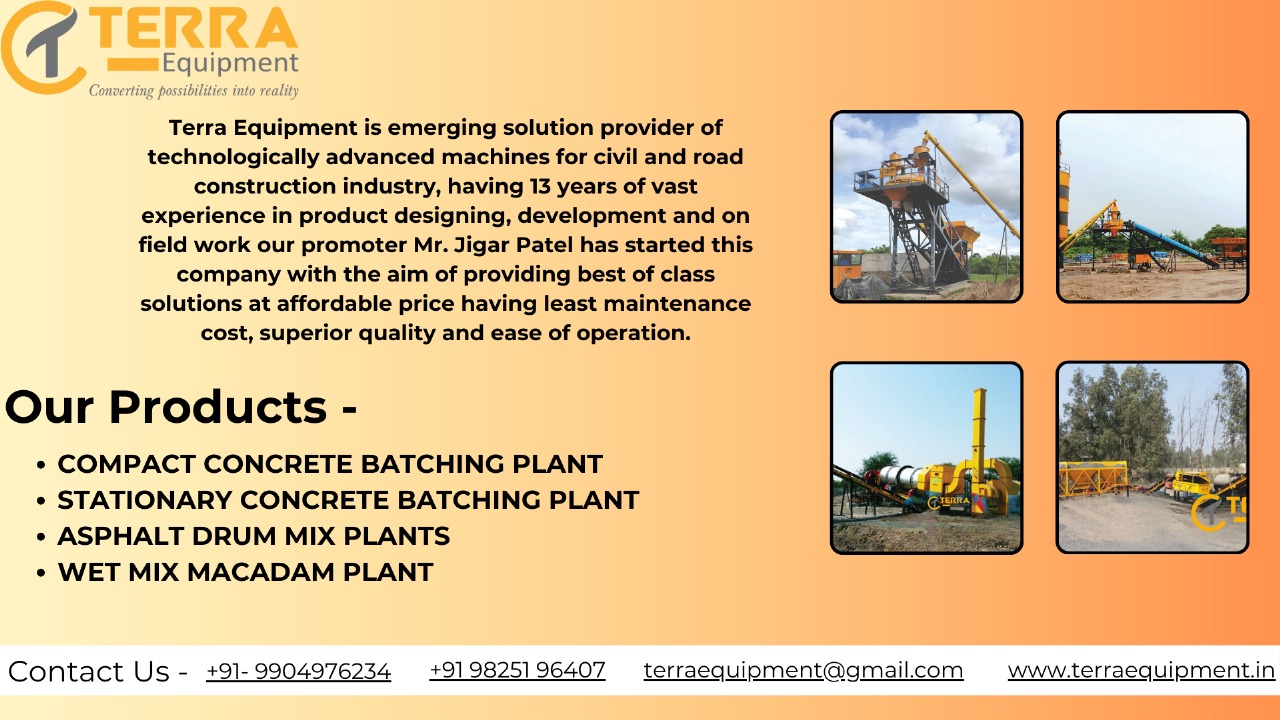Concrete Mixers
A concretemixer, also known as a cement mixer, is a machine that homogeneously
combines cement, aggregates (such as sand or gravel), and water to form
concrete. The mixer uses a rotating drum or a mixing blade to blend the
ingredients into a consistent and workable mixture. Concrete mixers are essential
equipment in the construction industry, available in various sizes and
typesranging from portable mixers for small-scale jobs to large, truck-mounted
mixers for major construction projects.
Top 10 Frequently Asked Questions (FAQs) of Concrete
Mixers
- What is the purpose of a
concrete mixer?
- To ensure a uniform and
efficient mixture of cement, sand, gravel, and water to produce
high-quality concrete.
- What types of concrete
mixers are there?
- Common types include drum
mixers, pan mixers, twin-shaft mixers, and self-loading
mixers.
- How does a concrete mixer
work?
- It rotates a drum or uses
internal blades to mix raw materials thoroughly until a homogenous
concrete mix is achieved.
- Can I mix concrete by hand
instead of using a mixer?
- Yes, but it is less
efficient, more labor-intensive, and may result in inconsistent mixing
compared to using a mixer.
- What size mixer do I need
for home projects?
- A small portable electric mixer (60-100 liters) is sufficient for DIY or home
improvement jobs.
- How long can concrete stay
in a mixer before use?
- Typically, concrete should
be discharged within 90 minutes of mixing to avoid setting inside
the mixer.
- What maintenance does a
concrete mixer require?
- Regular cleaning after each
use, lubrication of moving parts, and periodic inspection for wear and
tear.
- Is a concrete mixer suitable
for all types of concrete?
- Yes, mixers can be used for
most standard and custom concrete mixes, provided the right type is used.
- What power source do
concrete mixers use?
- They can be electric,
diesel, or gasoline-powered, depending on the model and
intended use.
- How do self-loading concrete
mixers work?
- They combine mixing,
loading, measuring, and transport functions, making them ideal for remote
or large-scale jobs.
Applications of Concrete Mixers
- Residential construction sidewalks, patios,
driveways.
- Commercial buildings floors, columns,
foundations.
- Road and bridge construction pavements, piers.
- Infrastructure projects dams, tunnels, water
treatment plants.
- Precast concrete production blocks, panels, pipes.
- Industrial construction warehouses, factories.
- Landscaping retaining walls, garden
features.
- Remote site construction especially using
self-loading mixers.
- DIY/home renovation small projects and
repairs.
- Emergency repair work quick fixes in disaster
zones or infrastructure breakdowns.
Benefits of Using Concrete Mixers
- Time-Saving Mixes concrete faster
than manual methods.
- Improved Quality Ensures consistency in
the mix for better structural integrity.
- Increased Efficiency Reduces labor requirements and speeds up work.
- Versatility Suitable for a variety of
construction tasks.
- Cost-Effective Saves money in the long
run through reduced waste and labor.
- Mobility Portable and
truck-mounted options allow on-site mixing.
- Reduced Material Waste Precise measurement and
mixing reduce spillage and overuse.
- Cleaner Work Environment Contained mixing reduces
dust and debris.
- Less Physical Labor Minimizes the strain on
workers.
- Adaptability Can be used in remote or
difficult-to-access locations.
Contact us more details:
Call: +91 98251 96407 +91- 9904976234
Email:
terraequipment@gmail.com
Address: Survey No- 231, Dediyasan
Village, Opp Lilaba Weigh Bridge , Mehsana -384002 Gujarat

